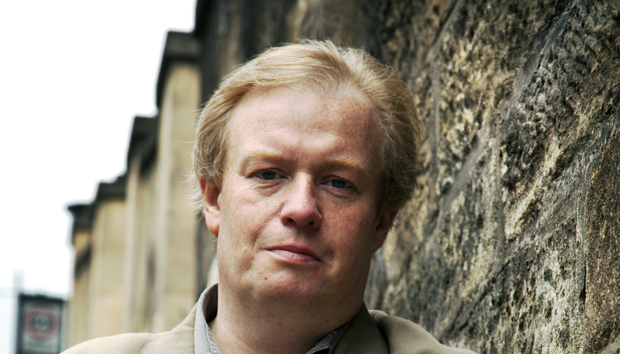Showing @ Royal Lyceum Theatre, Edinburgh, Thu 19 Jan – Sat 11 Feb
Our relationship with magic and the occult has historically been a confusing one. On the one hand, it was quite a prosperous industry during the Victorian era in Britain and America, yet we have those age-old notions of Black Magic being linked with the Devil and certain “evil” practices. Peter Arnott, who has written the script for The Infamous Brothers Davenport by visual theatre company Vox Motus, chats to us about how the booming spiritual industry has been misinterpreted over the centuries.
The Davenport Brothers were a real duo of illusionists who were practicing during the rise of Spiritualism throughout the late-19th century. While Arnott admits that there is “a fairy tale element to this show, in which the reproduction of their magic is spiritualist, it’s also their story, so it features some very dark moments of illusion and fantasy”. Arnott explains that “it was actually the Fox Sisters who started the table-rapping industry and it was huge – the Davenports were the stars at the time but were only part of several other families involved”.
To show how big of an industry it was – and Arnott admits that industry is exactly the term for it – “a woman called Victoria Claflin Woodhull (a magnetic healer and spiritualist) ended up running for President, so it really was considered highly in society, especially in Britain where spiritualists toured”. It’s funny how much this appeals to our sense of history, that our version of either countercultures or how we perceive science and nature may well have been diluted or misshapen as time has gone by. Arnott explains that it “seems odd to us but spiritualism was thought of as the scientific proof of life after death, so there were a lot of societies for psychic research and people believed phenomena as being ultimately scientific”. Bearing in mind that this occurred at the same time as Darwin, Arnott also explains how “our version of history is usually wrong, the same as how Newton was an alchemist as well as being the founder of gravity; it strikes us as strange but at the time it was very different”.
Yet behind all the mysticism and historical foundations of magic in society, there no doubt lies a playful and entertaining side to it all. The industry was, after all, a fusion of what was considered scientific practice with the artistic display of those “discoveries”. Arnott draws attention to the fact that “audience members will be on stage and everyone will be dressed up” which makes for a night of theatrical entertainment while allowing Vox Motus to employ certain tactics to both thrill and perplex the crowd. Arnott says that “Vox Motus have usually done small theatres; this is a major theatre space so it’s a step up. And it’s a risk for the Lyceum yet they have allowed us to play with this. We are living in troubled times but the response is: you can’t be scared”.
Arnott reflects on how “it’s a show about human creativity, it’s a show about that which is beyond the everyday, and it’s about lies and truth and betrayal. Hopefully it’ll be a rich and strange evening”. With the prospect of Victorian-era theatrics, magic and illusion, contemporary visual theatre, costumed audiences, live interaction and storytelling, it might be worth ditching your night out to see Derren Brown.
